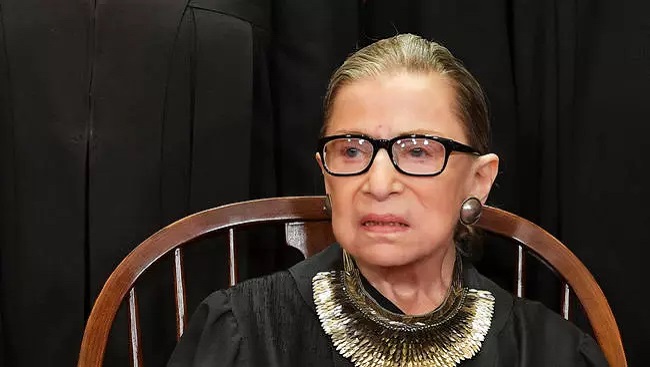US Supreme Court Justice Ruth Bader Ginsburg dies from pancreatic cancer, age 87
Justice Ruth Bader Ginsburg, a stalwart liberal on the US Supreme Court since 1993, died on Friday at age 87, the court said, giving President Donald Trump a chance to expand its conservative majority with a third appointment at a time of deep divisions in America with a presidential election looming.
Ginsburg, a champion of women’s rights who became an icon for American liberals, died at her home in Washington of complications from metastatic pancreatic cancer, the court said in a statement. She was surrounded by her family, the court said.
Her death just over six weeks before Election Day is likely to set off a heated battle over whether President Donald Trump should nominate, and the Republican-led Senate should confirm, her replacement, or if the seat should remain vacant until the outcome of his race against Democrat Joe Biden is known. Majority Leader Mitch McConnell said late Friday that the Senate will vote on Trump’s pick to replace Ginsburg, even though it’s an election year.
Trump called Ginsburg an “amazing woman” and did not mention filling her vacant Supreme Court seat when he spoke to reporters following a rally in Bemidji, Minnesota. The White House said in a statement that the flag was at half-staff in the justice’s honor.
Biden called Ginsburg an “American hero” on Twitter and told reporters, “The voters should pick the president, and the president should pick the justice for the Senate to consider”. He made the comment after McConnell said the chamber would vote on a potential Trump nominee.
Chief Justice John Roberts mourned Ginsburg’s passing.
“Our Nation has lost a jurist of historic stature,” Roberts said in a statement. “We at the Supreme Court have lost a cherished colleague. Today we mourn, but with confidence that future generations will remember Ruth Bader Ginsburg as we knew her — a tireless and resolute champion of justice.”
Trump, seeking re-election on November 3, already has appointed two conservatives to lifetime posts on the court, Neil Gorsuch in 2017 and Brett Kavanaugh in 2018. Supreme Court appointments require Senate confirmation, and Trump’s fellow Republicans control the chamber.
Supreme Court justices, who receive lifetime appointments, play an enormous role in shaping US policies on hot-button issues like abortion, LGBT rights, gun rights, religious liberty, the death penalty and presidential powers. For example, the court in 1973 legalized abortion nationwide — a decision that some conservatives are eager to overturn — and in 2015 allowed same-sex marriage across the United States.
Ginsburg, who rose from a working class upbringing in New York City’s borough of Brooklyn and prevailed over systematic sexism in the legal ranks to become one of America’s best-known jurists, was appointed to the Supreme Court by Democratic President Bill Clinton in 1993. She provided key votes in landmark rulings securing equal rights for women, expanding gay rights and safeguarding abortion rights.
Source: France 24





